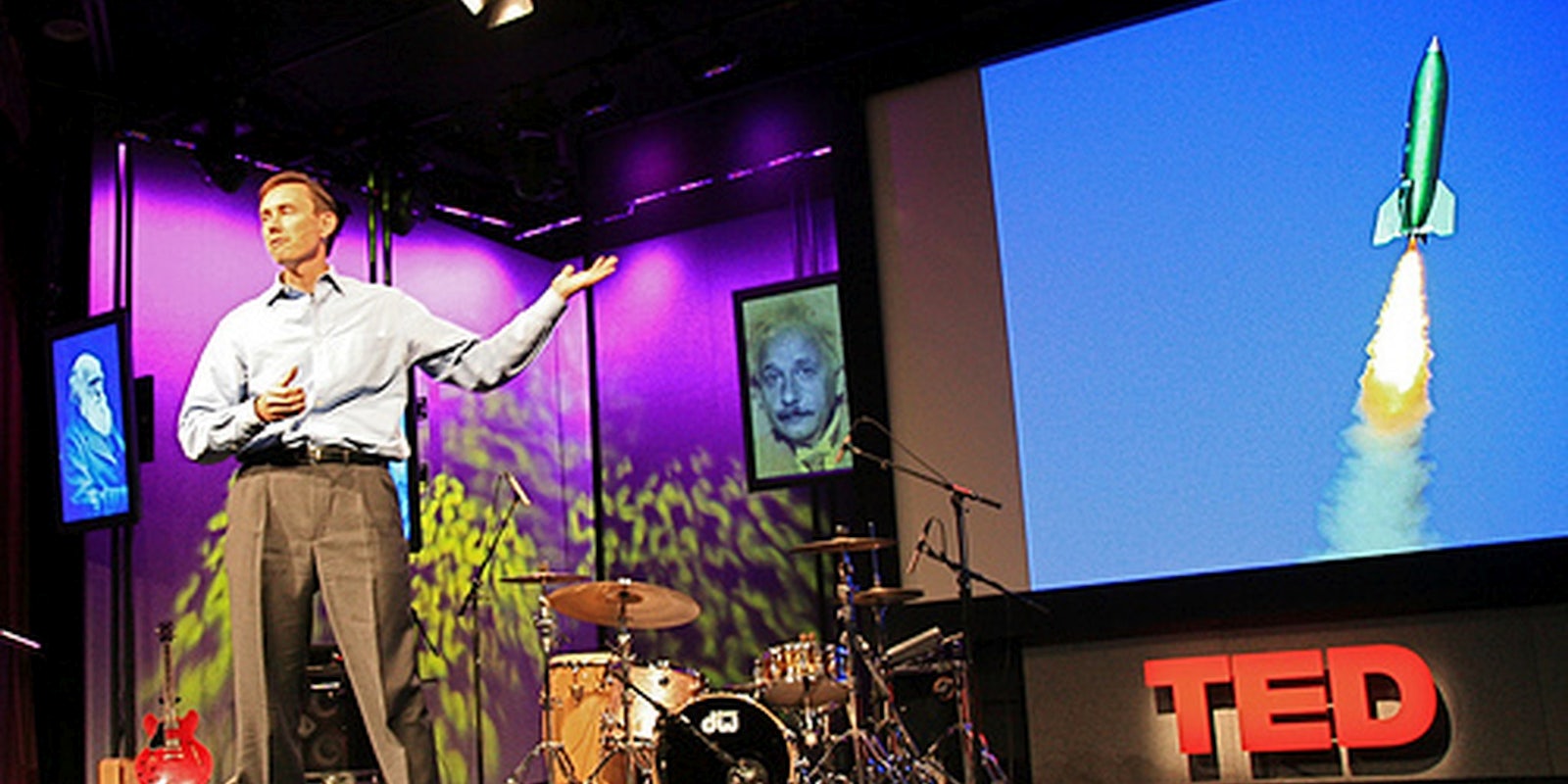TED has finally found an idea not worth spreading.
If your online or offline circles include a certain brand of technology-obsessed optimist, you’ve probably been exposed to a TED Talk at one point or another.
Since the talks became available to watch online in 2006, web communities have had a love-hate relationship with the conference. On the one hand, who wouldn’t want to hear chats from cultural icons like Bill Gates, Richard Dawkins, and Bill Clinton? On the other hand, critics have attacked TED for being too elitist, too corporate, and, perhaps the most damning critique, sounding smart without actually being smart.
Now, the TED haters have even more fuel with the announcement that a recent talk about income equality from venture capitalist Nick Hanauer was deemed too controversial to post online.
According to the National Journal, the gist of the talk was that middle-class Americans create more jobs than the ultra-rich. Hanauer also contended that income equality is kind of a big deal, and that making rich people pay a little bit more in taxes won’t actually cause the collapse of the American economy.
“We’ve had it backward for the last 30 years. Rich businesspeople like me don’t create jobs. Rather they are a consequence of an ecosystemic feedback loop animated by middle-class consumers, and when they thrive, businesses grow and hire, and owners profit. That’s why taxing the rich to pay for investments that benefit all is a great deal for both the middle class and the rich.”
According to an ABC News/Washington Post poll from last November, six in 10 Americans support policies that address income inequality. While 60 percent hardly constitutes a consensus, being concerned about the widening wealth gap isn’t exactly a fringe belief either.
Shortly after the news broke, NYU journalism professor Jay Rosen came out swinging against TED in a Facebook post (full disclosure: Rosen was one of my professors at NYU):
“Good lord, this is pathetic! TED talks have become world famous behind their clever and highly effective three-word slogan: Ideas worth spreading. Well, here’s a story about what that slogan really means. If your ideas are “too political” for an election year, if they threaten to divide the audience because the politics of income inequality is inherently divisive, if what you have to say as a thinker and author disturbs the non-partisan fantasy life of TED organizers, then suddenly those ideas are NOT worth spreading, according to TED. I haven’t given a TED talk. But I have given a TEDx talk (two.) Now I’m kind of embarrassed about it.”
Rosen wasn’t alone: Alex Pareene, a politics writer for Salon.com sent a pair of sarcastic tweets attacking TED for focusing more on hip tech trends than helping the poor:
“Doesn’t bode well for my forthcoming TED Talk “Gamifying the Complete Destruction of the Parasitic Rich”
“download this a+ TED talk “Typography Or Some Other Bullshit You Fixate On While Even the Meager Welfare State Evaporates” [LINK NOT FOUND]”
TED curator Chris Andersen responded to the National Journal in an email:
“Many of the talks given at the conference or at TED-U are not released. We only release one a day on TED.com and there’s a backlog of amazing talks from all over the world. We do not comment publicly on reasons to release or not release [a] talk. It’s unfair on the speakers concerned. But we have a general policy to avoid talks that are overtly partisan, and to avoid talks that have received mediocre audience ratings.”
It’s not like this is the first time a TED talk has covered political ground. Earlier this year, Clay Shirky delivered an “emergency TED talk” on the dangers of the Stop Online Piracy Act (SOPA). Other talks have covered divisive topics such as climate change and contraception. All three of these talks are available to watch online.
Photo via Steve Jurvetson
